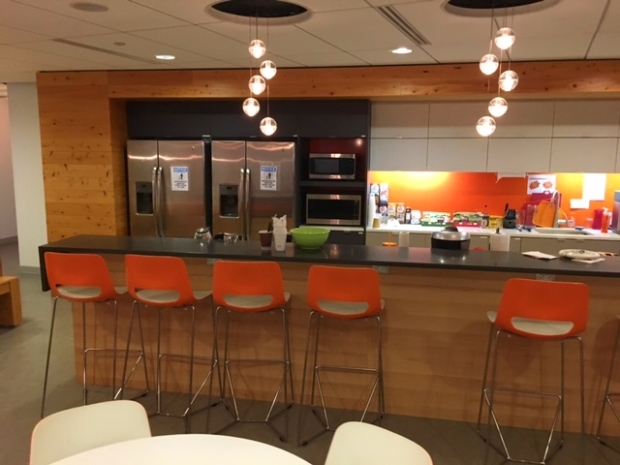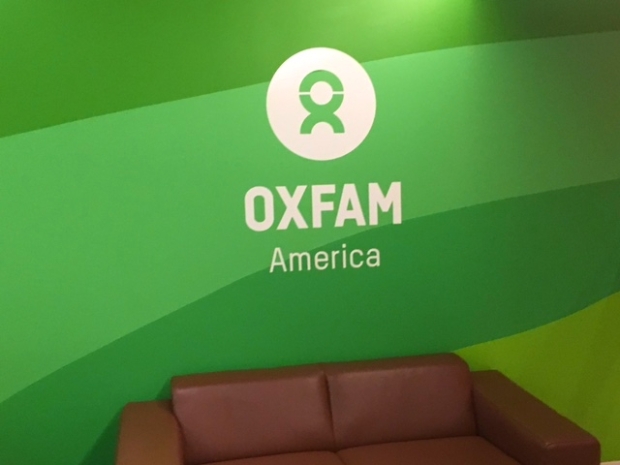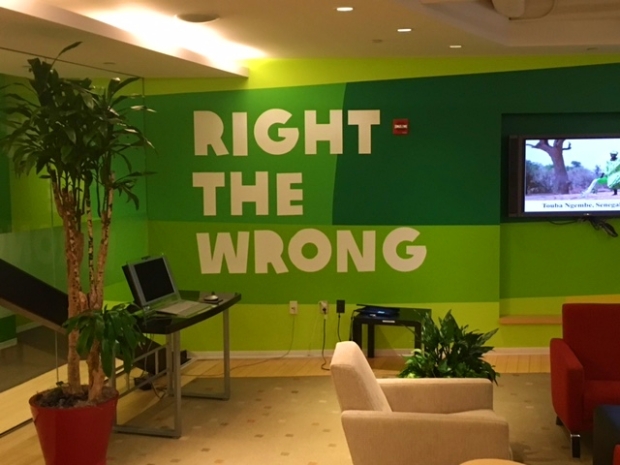We have found a new home! Kindly visit this link in our new website here: https://www.denver-frederick.com/2017/06/05/the-business-of-giving-visits-the-offices-of-share-our-strength/
Better Than Most is a regular feature of The Business of Giving examining the best places to work among social businesses and nonprofit organizations.
Denver: Share Our Strength is one of the most highly regarded nonprofit organizations in the country. Their No Kid Hungry Campaign is ending child hunger in America by assuring that all children get the healthy food they need everyday. I was recently down to their offices in Washington DC and had the opportunity to sit down with the members of the staff and ask them what it was like to work at Share Our Strength.

Allison: For me, one of the best things about working here has to do with this culture of hospitality and especially a charitable assumption. And to me what that means is that when someone misses a deadline or hasn’t done something that was up to your standards, whether it’s said explicitly or not, that people are constantly saying, “You have no idea what else is going on in their life. You have no idea what else is on their plate, what other responsibilities they have…” and it just really fosters this spirit of camaraderie and helpfulness and kindness. And it really, I think, only helps our work product and I think really diminishes any sort of office tension in comparison to other places that I’ve worked. It’s really special and really nice here.
Clay: One is that our president holds regular brownbag lunches with a cross-section of employees to give them a venue to talk about any topics that they want to bring up. It also gives him an opportunity to pose different questions to them that the leadership team here is thinking about or issues that we’re wrestling with through engaging what employees think. Those conversations are translated for the larger leadership team so that they know about we came up and the things that we should consider taking action on or be thinking about how we’re addressing them especially when there’s a misconception about something that’s been communicated or anything like that.
Khia: Specifically going back to onboarding, I think when it comes to the company culture, we do stress that. For me, I tell my friends, like “If you aren’t open to being creative and doing something new, then this might not be a place for you,” because we definitely do a lot of things new all the time, which is great. It keeps things fresh, keep things new. And then once they’re onboarded, I do a specific orientation on learning and development, just making sure that people understand that that’s important to us in developing our employees while you’re here and as well as going forward if you do leave the organization.
Morgan: But my favorite thing, and I was so, so happy to hear about this when I first joined the team, is that they have this awards called the “Golden Apple Awards.” There are four given out twice a year. It’s based on leadership, fun, team work, and you’re nominated by your colleagues and you actually get this amazing, very high-quality trophy that is of course shaped like an apple. And you’re recognized in front of all staff at the all staff meeting and your supervisor or usually an executive on your team gives an overview of the work that you’ve done. And I can’t say that I’ve ever seen that anywhere.

Amanda: But one of the things I really liked was it wasn’t an initiative that just came out from the HR team saying, “We are going to become more diverse, and these are the five ways we’re going to do it.” I really liked that the organization opened up the call to anyone and everyone that wanted to join and really take the initiative on. They’re being very fluid and open about what diversity means, whether it’s with the people that we work with, the work that we’re doing, the people we’re working for, partnerships. It’s really kind of across all boards what does diversity and inclusion look like as we implement our work.
Allison: One is about the salary conversations. Increases annually are always very separate from your performance review. That’s set out really intentionally so that the focus is separate on your performance and how you can improve and making sure that you’re growing and concentrating on your skill set and your performance.
But it used to be associated with the point system and they stripped the point system from it, too. And I love that because now it allows you to just stick to really what skills and cater that to the individual employee versus being so stuck on this number and making the number fit across your team and making it make sense across peers and different job descriptions. So that’s been really helpful and I think really encouraged honest conversations about people’s performance and how they can grow.
Donna: So we were all given an opportunity to either be a mentor or be a mentee, and I offered to be a mentor. We had speed-dating round where we all went around to see how we all got along and then we got to vote on the three people we’d want to mentor or who we wanted to be our mentor. I was paired up with somebody from a different department. It’s been really nice and HR gave me some training about how to be a mentor, and I just really liked that opportunity. I’m not a manager but it’s developing a nice, interpersonal, some skills and a relationship with somebody I wouldn’t normally interact with and I just think that’s a very caring and supportive thing to do here and I appreciate that.
Denver: I want to thank Billy Shore, their founder and CEO, for opening up their offices to all of us and to those who participated: Clay Dunn, Khia Carter, Morgan Hultquist, Amanda Villacorta, Donna Batcho, and Allison Shuffield. The audio and transcript as well as pictures of the participants in the Share Our Strength offices can be found at denverfrederick.wordpress.com

The Business of Giving can be heard every Sunday evening between 6:00 p.m. and 7:00 p.m. Eastern on AM 970 The Answer in New York and on iHeartRadio. You can follow us @bizofgive on Twitter, @bizofgive on Instagram and at www.facebook.com/BusinessOfGiving


 Oliver
Oliver